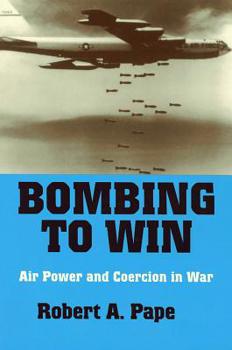Bombing to Win: Air Power and Coercion in War (Cornell Studies in Security Affairs)
(Part of the Cornell Studies in Security Affairs Series)
Select Format
Select Condition 
Book Overview
From Iraq to Bosnia to North Korea, the first question in American foreign policy debates is increasingly: Can air power alone do the job? Robert A. Pape provides a systematic answer. Analyzing the results of over thirty air campaigns, including a detailed reconstruction of the Gulf War, he argues that the key to success is attacking the enemy's military strategy, not its economy, people, or leaders. Coercive air power can succeed, but not as cheaply as air enthusiasts would like to believe.Pape examines the air raids on Germany, Japan, Korea, Vietnam, and Iraq as well as those of Israel versus Egypt, providing details of bombing and governmental decision making. His detailed narratives of the strategic effectiveness of bombing range from the classical cases of World War II to an extraordinary reconstruction of airpower use in the Gulf War, based on recently declassified documents. In this now-classic work of the theory and practice of airpower and its political effects, Robert A. Pape helps military strategists and policy makers judge the purpose of various air strategies, and helps general readers understand the policy debates.






